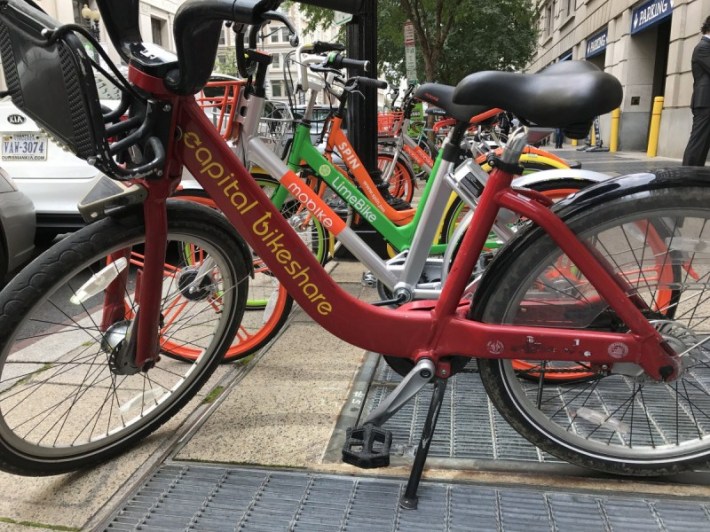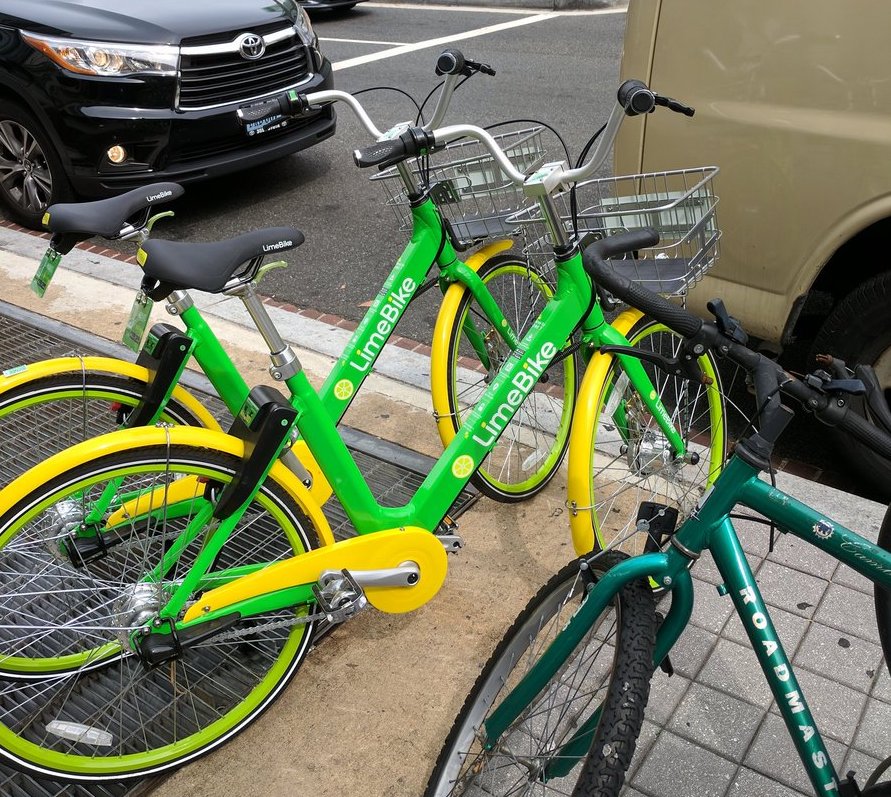Dockless bike-share has been booming in other bike-friendly burghs like Seattle and Washington, D.C., but so far there has been a notable radio silence from the city of Chicago as to whether it’s open to this new technology coming to our town. With dockless bike-share, there’s no need for expensive docking stations to secure the bikes. Customers use a cell phone app to find and access bikes distributed around a city and secured with built-in wheel locks. As such, it’s relatively inexpensive and easy for private companies to introduce fleets of the bikes to cities – if they can get the blessing of the powers that be.
Today the Chicago Department of Transportation broke its silence on the subject. Spokesman Mike Claffey provided this statement:
As you are well aware, the City of Chicago has consistently demonstrated a strong commitment to providing diverse affordable transportation options, through Divvy and other means. City ordinance does not currently address dockless bike share. We are aware of this as an emerging business model and have seen other jurisdictions start to explore the concept, for example, in Washington, DC, which recently launched a pilot program. We are monitoring this closely to observe the benefits it offers residents and any impact it has on their conventional bike share system.
Claffey declined to comment on whether the city has been in talks with any dockless bike-share providers.
With a president in power who has announced plans to eliminate federal funding for sustainable transportation, dockless bike-share could potentially be a cheap way to bring this transportation mode to outlying Chicago neighborhoods that don’t yet have Divvy docks. The new technology could also generate much-needed permit and tax revenue for our city. It may also create jobs, since workers will be needed to “rebalance” the cycles, maintain and repair them, and possibly do outreach and marketing for the services.
But dockless bike-share could also be a double-edged sword. CDOT has invested tens of millions of dollars in Divvy infrastructure, with much of the cost coming from the docks. While dockless could be a good short-term solution for neighborhoods like Beverly, Morgan Park, and Pullman, where residents have been pushing for Divvy service, it’s likely that vendors would be more interested in high-demand areas like downtown, the West Loop, the Near North Side, and the Near Northwest Side. This would create competition with existing Divvy service, which might actually lead to a net loss of revenue for the city. Recently CDOT has been using Divvy funds for bike infrastructure projects such as the recent complete streets overhaul of Milwaukee Avenue in Wicker Park/Bucktown.
Other unintended consequences of dockless bike-share could include the new bikes clogging bike racks or littering the streets (which is why Amsterdam recently banned the technology.) In a big city like Chicagos, theft of free-locked bikes could be an issue, and it’s even possible that scrappers may try to fence the cycles to metal recyclers.

Former Streetsblog editor-at-large Payton Chung tells me that in D.C., where several different dockless systems have recently launched to complement the traditional Capital Bikeshare system, with the city’s encouragement, things seem to be going reasonably smoothly so far. “#DocklessFail has become a pretty popular hashtag, but in the grand scheme of things maybe 80-90 percent of the ones I see are properly parked,” he says. “Availability [of CaBi cycles] seems to be a little bit better since hundreds of new bikes launched." On the down side, Chung says the dockless bikes are highly bunched downtown, and scarce in the neighborhoods.
So the it seems like the city of Chicago should seriously consider allowing dockless bike-share to debut here. But rather than having a Wild West scenario with private companies “disrupting” the successful Divvy system, the rollout should be done with care, so that this new technology does more good than harm.




